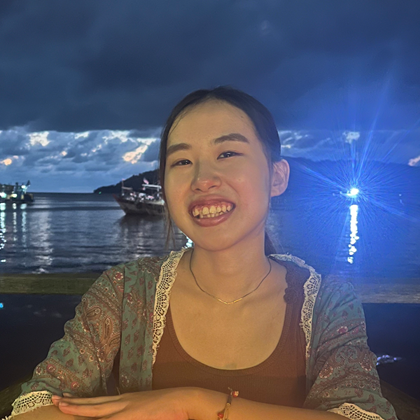VOICES
ACE Online Course(PKU) 2024 Fall
College of Tourism
Ms. Hana Hiwatari

Reconsidering self-understanding and identity: A look at Myself and Others
“ACE Partner University Online (PKU)” offers us a valuable opportunity to study with students from partner universities in a small class setting. The course is themed “Chinese Traditional Identity and its Modern Transformation” and covers topics such as Confucianism, family relations, social order, and so on. I took this course because I was strongly drawn to the phrase 'Who are Chinese? How did Chinese people think about themselves?' on the first line of the course syllabus. My interest in this question stems from my experience of studying abroad in Malaysia for a year from 2023. While spending time with friends from various backgrounds, I became interested in how one's own identity is formed. Another major influence was the “Global Study Program 1” that I took in my first year of College of Tourism. In this program, we learned about traditional Chinese costume, but beyond an understanding of dress and clothing, this program also gave me a chance to rethink my own roots and identity.
In each session at “ACE Partner University Online (PKU)”, students read and discussed the assigned references and then received feedback from the professor. The most interesting topic was about Cha-Xu-Ge-Ju, which in English means “the differential mode of association”. The concept is the fundamental pattern of social relationships and organization in traditional Chinese society. It describes Chinese social relationships as the ripples created when a stone is thrown into a lake. Each person stands at the center of the ripples, and the relationship extends from family to friends to strangers. I have never thought of my relationship like this concept before, so I was surprised and gained a new perspective.
We were often asked “what do you think?” due to the small class size. It made me nervous every time, but it was an environment where I was always challenged even when it was difficult to verbalize. Being in an environment that accepts and understands different opinions helped me to develop my ability to communicate my views clearly and reconfirmed my interest in learning about differences. In addition, I was sometimes asked questions about Japan or as a Japanese person, and I struggled to explain the cultural differences and background without over-generalizing or abstracting. However, I believe this struggle reflects both Japanese culture and my identity as a Japanese person.
In conclusion, not only did I deepen my understanding of Chinese society and identity, but I also reassessed my own identity. In particular, I gained a new perspective on myself and my relationship with others. In addition to learning academic knowledge, this course is also a great opportunity to rethink my own values through exchanges with students from overseas universities. By exchanging views with students from different cultures and ways of thinking, I was able to broaden my multifaceted views and perspectives. If anyone is considering taking this course, I encourage them to participate as it is an excellent opportunity to learn different perspectives and reconsider one’s values.
